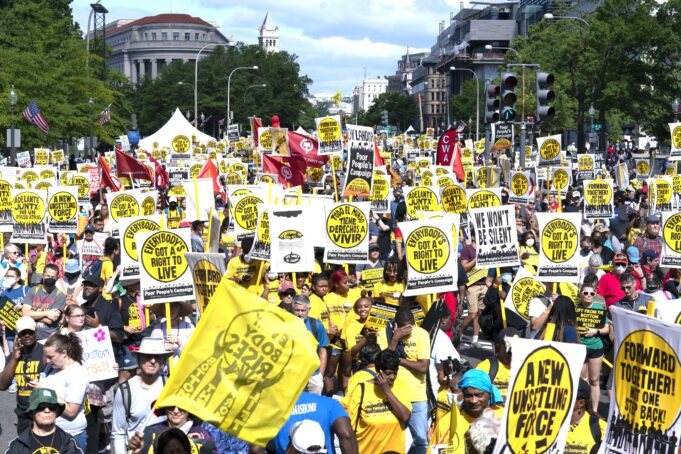WASHINGTON—Lives are behind the statistics of millions of America’s poor and they have a story to tell.
“My dad divorced my mom and after that, for as long as I can remember, we were poor and homeless. When we weren’t homeless, we were about to be evicted. To make matters worse, as an adult, I do not drive; do not know how to drive. My mother never had a car and we always rode the bus. I was never able to do the high school driver’s ed requirement. Now I have to pay for a driver education course,” said Hazel Mathias, who lives in D.C., and is in her late 30s.
She attended the recent Poor People’s March and rally in the heart of the city. The march focused on the problem of crushing poverty in the richest country in the world.
“Something has to be done. My grandparents were poor too. This seems to be a generational curse. How can there be so many poor people in America and President Biden can find money to send weapons to Ukraine? What about us? Where are the billions to help Americans like me?” Mathias asked.
Bishop William J. Barber II, co-chair of the Poor People’s Campaign: A National Call for Moral Revival, convened the march. He has consistently talked and warned about what could happen if America doesn’t gain a moral footing reflected by more compassion and helping the least of its people.
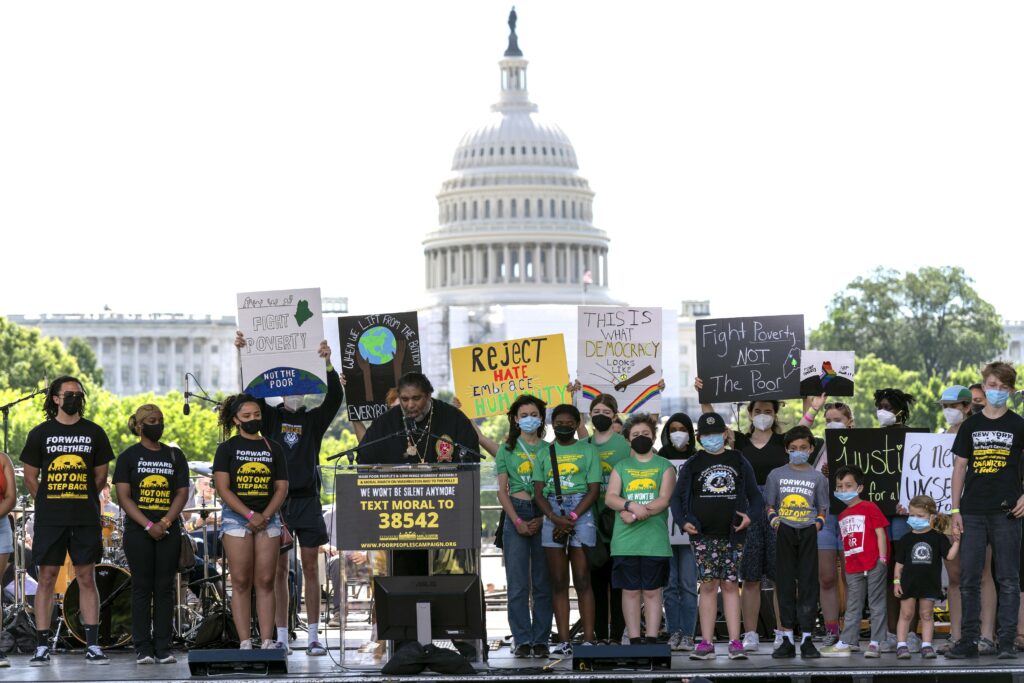
Thousands, from across the United States, gathered near the U.S. Capitol for a march down Pennsylvania Avenue to the White House. One goal was to put faces on the growing numbers of people affected by rising rents, homelessness, unemployment, low wages and poor working conditions.
“At one time, poverty was a temporary condition and you could bounce back,” Claire from Flint, Mich., told the crowd. “We can’t bounce back up today. It’s permanent. We’re not going back to the factory to build cars and trucks as we once did.”
The Rev. Barber II worked with more than 300 organizations to bring the diverse, broad-based movement together focused on the intersecting injustices people all over America are facing. Their solution is a Third Reconstruction Agenda to Heal the Nation: End Poverty and Low Wages from the Bottom Up. The Poor People’s Campaign mass gathering started June 17 with a memorial service at Freedom Plaza. The next day was the mass rally beginning with the march down Pennsylvania Avenue.
The Poor People’s Campaign seven-point program includes an official counting of 140 million poor people in the United States instead of the 39 million reported by the federal government. They want congressional lawmakers to commit to addressing the needs of the poor. They plan to bring 5,000 people back to D.C. in September with 100 economists for non-violent direct action and walking the halls of Congress all day. Mid-term elections for Congress will be held in November.
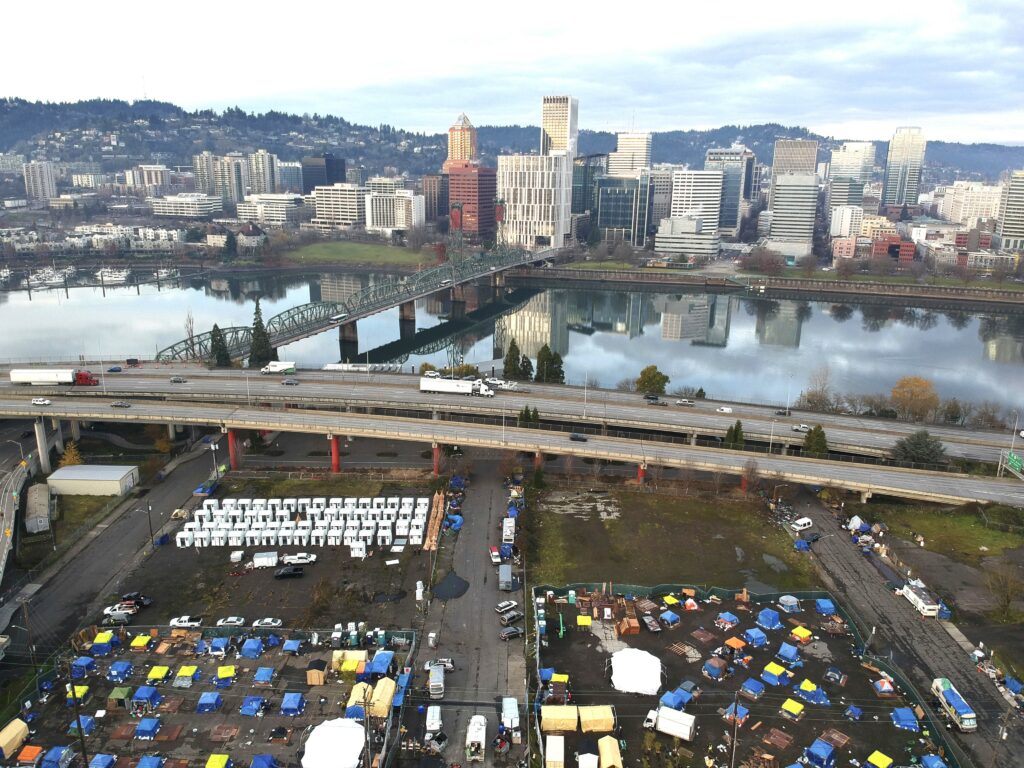
“We demand a White House Poverty Summit with President Biden to allow this administration to meet with a delegation of poor and low-wage workers, religious leaders and economists. Now!” Rev. Barber told the crowd to thunderous applause June 18. “This campaign announced a launch of a nationwide effort for the next 143 days to register and educate poor and low-wealth communities to vote in every election for candidates that commit to addressing poverty and low wages. We vow that we are a movement that fights, a movement that marches, a movement that uses nonviolent truth and love.”
Person after person spoke to the crowd about the horrors of living in poverty in America. Stanley Sturgill from Lynch, Ky., said: “I worked 41 years in the coal mine. I have black lung disease and it’s just unfathomable what these coal miners have to go through in order to get what they have worked for. We are demanding that we stop the war on the poor.”
Guadelupe de la Cruz of Florida said, “When immigrants come to my state, they are fleeing violence, war, and poverty. But what do they find when they arrive in the richest democracy in the world? They are turned away or told they are criminals and don’t deserve any rights. They are humiliated, shackled with ankle monitoring bracelets and left to manage the immigration system on their own.”
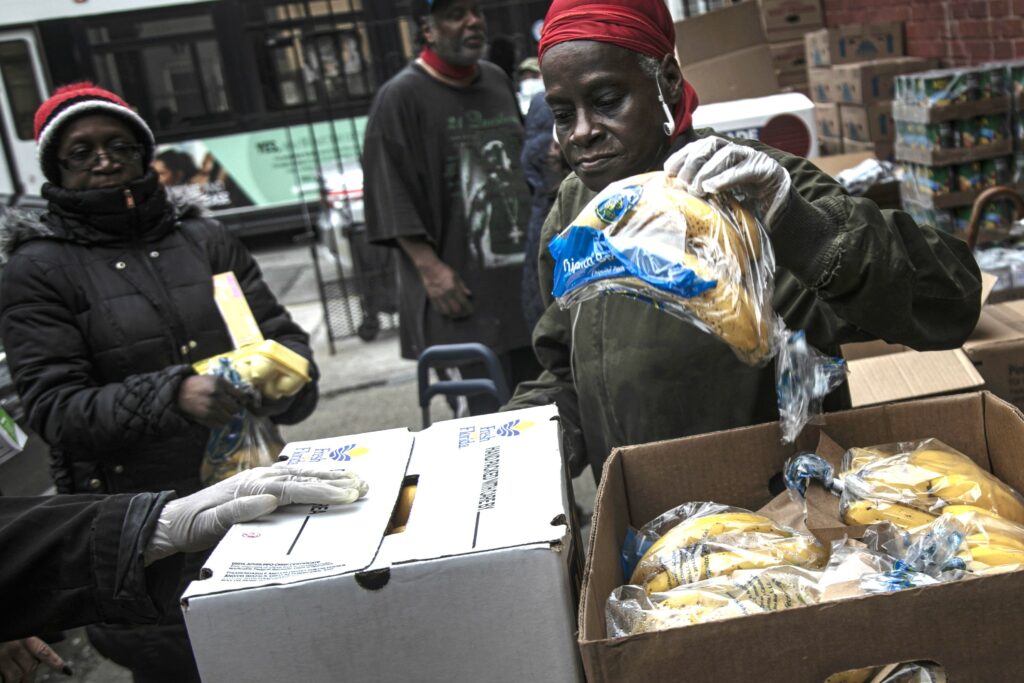
“The U.S. Congress must step up and protect people in Florida and other states where anti-immigrant forces have captured our democratic system,” she said.
Congress and the Biden administration have been focused on and able to find billions in federal dollars for the war in Ukraine. Even after several mass shootings, changes in gun laws have been talked about but not delivered. Some argue voting rights are under attack. It’s questionable that any of the movement’s demands will be met. Protesters, however, have vowed to continue fighting until relief comes.
As the crowd marched down Pennsylvania Avenue signs they carried read: “Homes not drones,” “Let’s smash capitalism together,” and “Reparations not occupation!”
The Rev. Bernice King, daughter of Dr. Martin Luther King, Jr., reminded the audience of her father’s first Poor People’s Campaign, which brought thousands to D.C. in 1968 after his assassination. That gathering was held June 19, 1968, and led by the Rev. Ralph Abernathy, a comrade and disciple of the slain civil rights leader.
“When I was growing up, my mother used to always remind me and my siblings that somebody has to cut off the chain of violence. Well, I’m asking all people of goodwill and conscience to join us in cutting off this chain of the violence of poverty. I’m asking all citizens, power brokers and politicians of this nation to pledge their voices and that work toward the elimination of poverty,” Bernice King said.
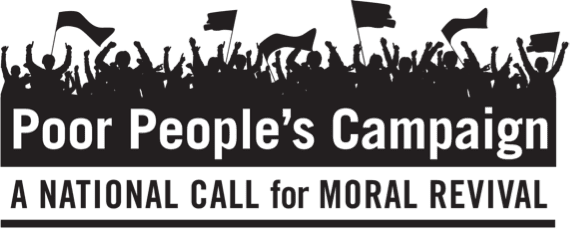
“Let me inform all people of goodwill, even those that believe they are exempt from this epidemic, that poverty won’t stop at low income workers. Poverty won’t stop at the stubborn suburban middle class; poverty won’t even stop with the business owners and business executives. Poverty is a system that will continue to consume more and more people, beget more violence, disenfranchise millions, and leave even more underserved until that nation and our people commit to creating the beloved community to dismantle it.”
Dr. Barber’s words throughout the program were often reminiscent of what the Honorable Minister Farrakhan of the Nation of Islam has been warning for decades.
“We must remind every nation that no matter how great she claims her gross domestic product is, or how powerful her military year is. Every nation is under divine judgment until they fully care and fully love for the least of these, the hungry, the outcast and the left out,” said Rev. Barber.
Other religious leaders like Dr. Tony Evans of the Urban Alternative and evangelical John McArthur warned that America is under divine judgment. Minister Farrakhan has warned of divine judgment against America and pointed out the consequences of her failures to address the needs of Black, poor and low-wage people.
“Even if we may not wish to believe it, Allah (God) has already given His Judgment on America. Although people sing, ‘God Bless America, land that I love. Stand beside her and guide her,’ and we get emotional, God has sent down His Judgment,” he said at Mosque Maryam in 2005. “America is that modern mystery Babylon that is written of in the Book of Revelations.
America looks good on the outside, but she is filled with filth and abomination of every kind on the inside. God is angry with her because she is a rebel against God and leads others into rebellion. Whatever God says, ‘Thou shalt not do,’ America says, ‘It’s alright.’ So, the Holy Qur’an says that the devil has made evil fair-seeming to man.”
A nation built on inequality
“What we’re talking about is this democracy cannot sustain the tension of 140 million people living in poverty and low wealth—and 52 percent of our children—in the wealthiest nation on the face of the earth,” said the Rev. Barber, speaking at a pre-march forum. He is based in Goldsboro, N.C.
“The most moral people in this country are poor and low-wealth folk who get kicked in the teeth by systemic racism, poverty, ecological devastation, denial of healthcare, the war economy, the false moral narrative of religious nationality. And they still love America! And they still have some spirituality and they still believe in the possibility of change. If that ever changes, we are in a world of hurt,” he warned June 16, during a briefing co-hosted with the Institute for Policy Studies and the Economic Policy Institute.
The briefing included a focus on poverty, immigrant and Indigenous rights, ecological devastation, the denial of health care and militarism. The discussion included Rep. Pramila Jayapal (D-Wash.), chair of the Congressional Progressive Caucus; Rep. Barbara Lee (D-Calif.), chair of the Majority Leader Task Force on Poverty and Opportunity; and Rep. Ro Khanna (D-Calif.).Other members of Congress who attended the event included Rep. Bobby Scott (D-Va.), Rep. Sheila Jackson-Lee (D-Texas), and Rep. Sara Jacobs (D-Calif.).
The briefing showcased the concerns of millions of workers who walked off their jobs protesting unsafe working conditions, poverty wages, corporate greed and the refusal of politicians to address the needs of poor people.
While the Biden administration has shared visions of economic improvement, these people, who are most in need, see little change.
In 2020, 37 million-plus people lived in poverty, according to census data. Families making less than the federal government’s official poverty threshold, which for a family of four is about $25,700, are considered poor. This includes people working for minimum wages, and seniors on fixed incomes.
The Economic Policy Institute found that nearly half the workforce is stuck in jobs that pay under $15 an hour.
“Working people are fed up and fired up, and in workplaces across the country, we are saying enough is enough,” declared Liz Shuler, AFL–CIO president, at a march news conference. “We are tired of the rich getting richer while breaking the rules as working families just struggle to get by. The AFL-CIO is proud to support the Poor People’s and Low-Wage Workers’ Assembly and Moral March on Washington and to the Polls. We will join together in D.C. to call for an end to poverty.”
The AFL-CIO represents 57 unions that include more than 12.5 million workers.
William Barber III, director of climate and environmental justice at the Climate Reality Project, is glad environmental issues are being focused on. He is also the son of the march convener. He told The Final Call, “The reality is when we look at the current climate crisis, we know that the climate crisis and poverty, are directly intersecting. The climate crisis hits the poor and most vulnerable, we say in the environmental movement first, and worst… . When we look at the current manifestations of injustice and inequity, more often than not, these are not happenstance situations.
“These are the results of bad policy decisions. The legacy of racist housing and industrial policies that have historically led to environmental injustices, also allowed for a global climate crisis to manifest,” he continued. “We see the remnants of that in the fact that 68 percent% of African Americans today live within 30 miles of a coal-fired power plant.”
“We know that 700 people were dying every day before the pandemic of COVID-19. In the middle of a pandemic, we’re seeing growing healthcare costs where tens of millions of people are not able to get treatment. There are 87 million people, uninsured, or under-insured, 16.2 million people who have lost their employer provided insurance. The reality is the climate crisis makes all of that impact even worse,” he explained.
Minister Farrakhan has spoken for decades about what should be done to improve the lives of poor people.
“It’s sad that most of the congressmen, the representatives of the American people, are from the wealthy class. The wealthy and the privileged in this society, who have benefited most from the federal debt, corporate restructurings and plant relocations, are the people charged with representing the poor. Can they adequately represent the poor?” he asked.
“Manufacturing is the bedrock of self-independence. Why should America let others produce for her what she can produce for herself? Why should Italy produce all the shoes while the American shoemakers sit idle at home? Why should your garments be fabricated in Taiwan while your own plants close and collect dust? America could see the simple solutions to its problems if America were not blinded by greed and that old mentality of slave master and slave. Both mentalities have to be broken and replaced with a sense of community, humanity and fairness structured on truth and the principles of justice and equality.”












